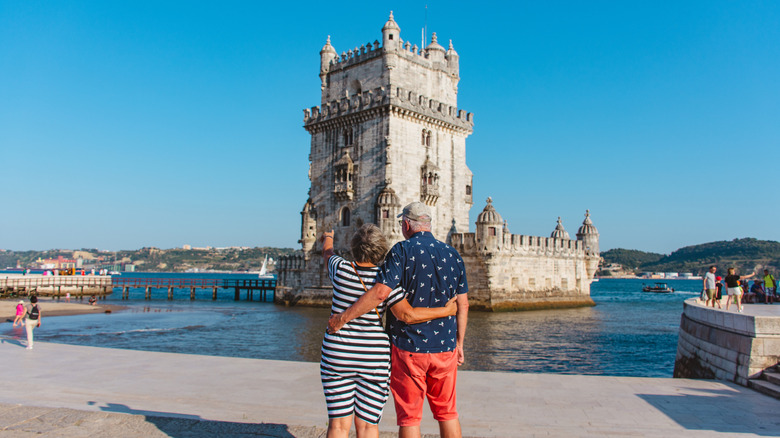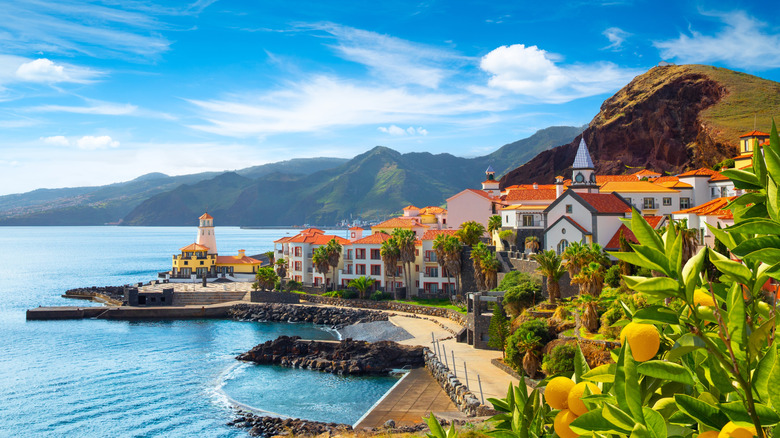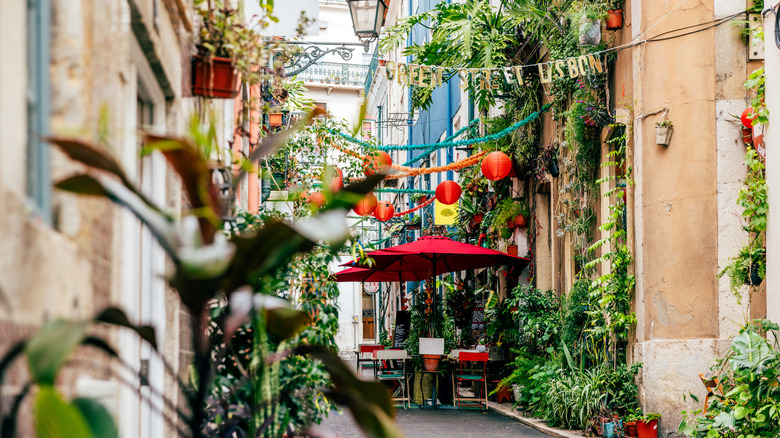All The Reasons Portugal Is The Best Place In Europe To Retire In 2025 (And One Reason It's Not)
When retirement comes, it's nice to know that your hard work has paid off by moving to a destination perfect for senior retirees. The Southeast Asian trio of Thailand, Vietnam, and Cambodia sits high on the much-discussed list of retirement options, as do various Caribbean islands. And while some people might fantasize about retiring to Greece or southern Italy, those are more expensive options. However, there's a middle option right along Europe's western coastline that travelers tend to overlook in favor of its larger, more renowned European neighbors: Portugal.
Portugal checks every single box for expats of all ages, retirement age included. It has warm, sunny, and dry coastal regions, as well as mountainous, higher elevation interior areas filled with forest landscapes. Its public transportation is solid and reasonably priced, and its road system is extensive. All in all, you could live quite comfortably at any age in Portugal for about $3,000 a month, and dial it back to a mere $1,500 if you're thrifty or live outside of a major city (per estimates from International Living). Healthcare is extremely affordable, especially for the elderly, capping at about $300 per month for a comprehensive policy for couple in their 60s. Depending on energy efficiency and the size of your house, utilities plus internet can range from $100 per month to $215 or so. Rent ranges from $450 for a one-bedroom in the country's inland to $1,000 and up in a coastal city like Lisbon.
There's really only one reason why you wouldn't want to retire to Portugal, but it's potentially a whopper. Foreign retirees were once only taxed at a flat 10% for pensions originating in another country. Now, retirees will be subject to Portuguese tax rates, which can reach a startling 48% (via Kiplinger).
The many upsides of retiring in Portugal
Portugal is a top retirement option in Europe, largely because it sits at a comfortable intersection of reasonable prices and quality of life. If you imagine being able to easily stroll to a random al-fresco café along close-packed, medieval streets like in the fairytale-like city of Guimarães, "Portugal's birthplace," then this could be your life for no more than $3,000 a month, taking some caveats into account.
Like most places, major coastal cities like Lisbon and Porto will be more expensive than the countryside. However, if you venture to Lisbon's larger metropolitan area, you'll not only find cheaper prices but also cool, underrated neighborhoods like Madragoa. Having the bustling city center so close means you can still dine out and explore Lisbon's creative cocktail scene at the hidden and hip speakeasy, Mini Bar, but it could take a significant chunk out of your $300 per month entertainment budget.
Everywhere in Portugal has access to the same affordable healthcare, which gets more and more important as we age. The country is also saturated with a dense public transportation network that makes it easy to get around, which is also important for retirees. You can see most of the country via bus or train, taking in Portugal's natural environment and cultural hotspots.
The tax-related downsides of retiring in Portugal
The downside to retiring in Portugal centers on one thing: changes to the country's non-habitual resident (NHR) system. This system used to provide immense tax benefits to expats during the first 10 years of living in the country. Benefits included limiting taxes on Portuguese-earned income to 20% rather than the maximum of 48%. Pointedly for retirees, taxes on foreign pensions used to be limited to 10%. This entire system came to an end in 2024, although residents could continue applying through March 2025.
Portuguese visa requirements have also been tweaked. The country's D7 visa still exists, aka the Passive Income Visa. The D7 grants access to Portuguese healthcare and open travel through the EU's Schengen Area, which includes all of Europe plus Iceland, Liechtenstein, Norway, and Switzerland (but not the U.K. or Ireland). Applicants need to receive income from some passive source, like a pension or investment, equaling a minimum of €8,460 to qualify (about $9,600 at the time of writing). This is all excellent for retirees.
However, Portugal's Golden Visa is now tougher to get. Essentially a visa for the wealthy, a Golden Visa now requires a significant investment rather than mere property ownership. Requirements include things like €500,000 (over $560,000) in funding for research activities or the creation of 10 jobs. This is an important, but sobering truth to bear in mind when planning for retirement.


